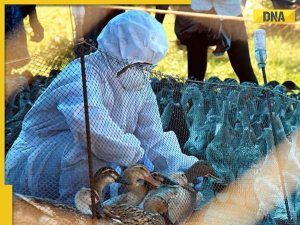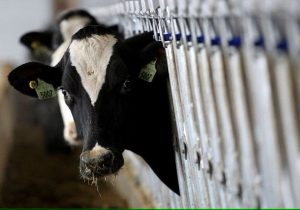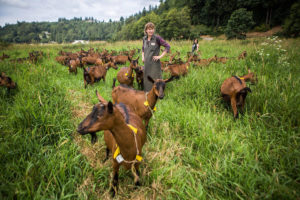The $50 million sustainability-linked loan is a pilot but BNZ will roll it out more widely if successful.
BNZ chief executive Angela Mentis said the bank would increasingly use lending linked to environmental targets with farmers, agribusiness and other sectors to meet the county’s climate change obligations.
“There is great work under way on New Zealand farms, throughout the primary sector and other sectors. We want to partner with businesses who are striving to go above and beyond compliance minimums and show what best practice in environmental management, labour and governance looks like,” she said.
Southern Pastures, owner of Lewis Road Creamery, will receive financial incentives for meeting new water quality and biodiversity targets and for achieving reductions in carbon emissions.
Executive chairman Prem Maan said farming in New Zealand should be driven by the ambition to become carbon-neutral.
“This deal recognises that farming to mitigate climate change and environmental impacts is in our common interest,” he said.
The agricultural fund owns 20 farms in Waikato and Canterbury, and already has a range of strategies in place to improve the health of the farm using its own independently audited internal “10 star premium standards” for welfare and sustainability, which had been key to its success overseas, he said.
Its Waikato farms, which supply Fonterra, include the largest organic farm in the country. This had already been used to learn how to minimise antibiotic use on all its other farms, he said.
The loan deal with BNZ would require the farms to make further improvements to on-farm plant biodiversity, total water quality and a reduction in total on-farm greenhouse gas emission. The targets would be independently measured each year by AsureQuality using a variety of reporting and data collection techniques, BNZ head of natural capital, Dana Muir said.
She said the loan structure had been developed for the pilot as part of the bank’s sustainable finance portfolio, but would not disclose the size of the discount.
Green banking products like sustainability-linked loans were increasingly common, said Massey University banking professor David Tripe.
While banks were capitalising on the feel-good factor of such products, it was increasingly just good business, he said.
Part of the danger for banks was that they could end up with loans to assets that might be subjected to severe regulatory penalties.
“If you have lent to a farm which is highly invested in [unsustainably] extracting as much water from wherever they can to pour it on the ground via cow’s urine, sending a whole lot of ntirates back into the water table … you might find that there is a significant reduction in the capital value of that farm as a consequence,” Tripe said.
“If you’re not doing [this kind of loan] you’re probably doing higher-risk lending,” he said.
Banks needed to consider how their lending would look longer term, from an environmental point of view, he said.
There was no organisation measuring banks’ performance in this regard, but banks knew there would be social demands they couldn’t ignore without looking bad in front of shareholders, he said.
BNZ executive for corporate and institutional banking Penny Ford said the work with Southern Pastures was groundbreaking and she expected the loan would become a key product for the bank. It signalled to the market the kind of customers it wanted to be working with.
Lending decisions used to be based on a narrower range of economic factors but now lending to businesses with stronger environmental, social and governance (ESG) credentials was seen as lower-risk by BNZ and others in the wider financial services sector, she said.








